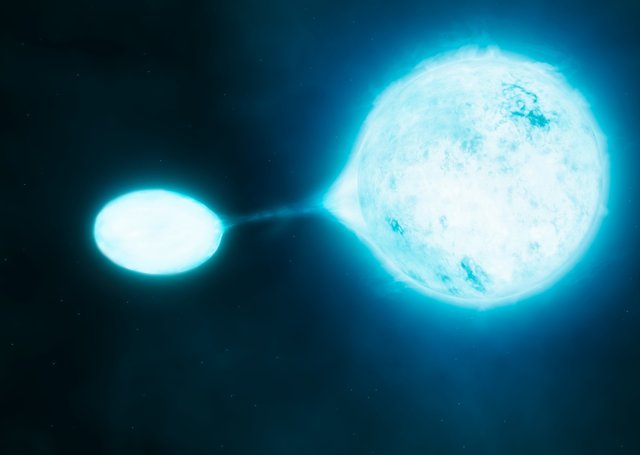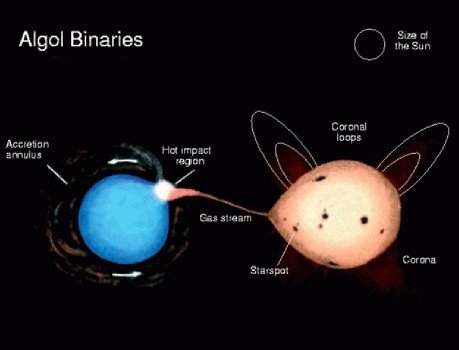SECRET A VAMPIRE STAR

Hi everyone.. Glad to meet you......!
This time the Universe has a pretty interesting story about the star, it's the vampire star. We know that the vampire works to suck the blood of other living things as we see in the movies. But what about this one vampire star? Apparently according to the observations of astronomers vampire stars also have a habit of sucking material from other stars.
This event was successfully immortalized by astronomers when they combined four telescopes at ESO's Paranal Observatory into a virtual telescope with a diameter of 130 meters and has a sharpness of view 50 times sharper than a Hubble telescope.
The sharpness of these 4 telescopes in the light gathering not only produces sharp images but also faster than usual. From these observations, astronomers discovered a star that has lost most of its material by being sucked by its vampire partner.
They use the SPHERE instrument, which has the ability to direct imaging, in order to get detailed information about the material released by the star. But there are interesting from this incident, it turns out from the observations found that the transfer of matter from one star to another star can be more gentle than expected. The ability of virtual telescopes or virtual telescopes is very sharp in taking the image of these two stars, so astronomers not only see the two stars orbit each other, but also can measure the size of the largest star between them.
The Star Couple Who Lost The Material
The star observed by astronomers using a virtual telescope at the Observation Paranal is a double star system called SS Leporis in the constellation Lepus. The SS Laporis System is a stellar system that has abnormalities from other star systems, where these star systems are two stars which orbit each other with a duration of 260 days.

Both of these stars have a fairly close distance, slightly further than the sun's distance to the earth. In that span range, the largest and coldest star stretches to ¼ the distance of the two, or in other words, the largest star has a radius up until the distance to mercury. Because of their close proximity, the hotter pair stars have sucked nearly half the mass of their larger partner stars.
According to Henri Boffin of ESO, this double star is indeed unique and the material flows from one star to another. The unusual is the different mass transfer methods of the pre-existing model. This vampire star bite is much softer and more effective. The observations are also sharp enough to show that the giant star in the system is smaller than previously thought. As a result it becomes more difficult to explain how a red giant star experiences material loss in its partner's star.
Astronomers suspect that the happening is not the flow of matter from one star to another but the material is exhaled from a giant star as a stellar wind and is captured by its hotter partner.
References :


Hi, I found some acronyms/abbreviations in this post. This is how they expand: